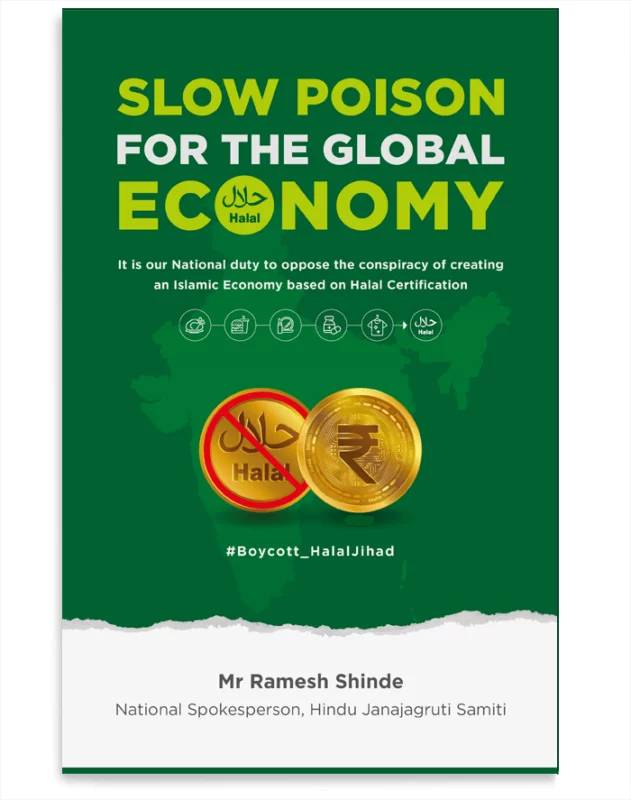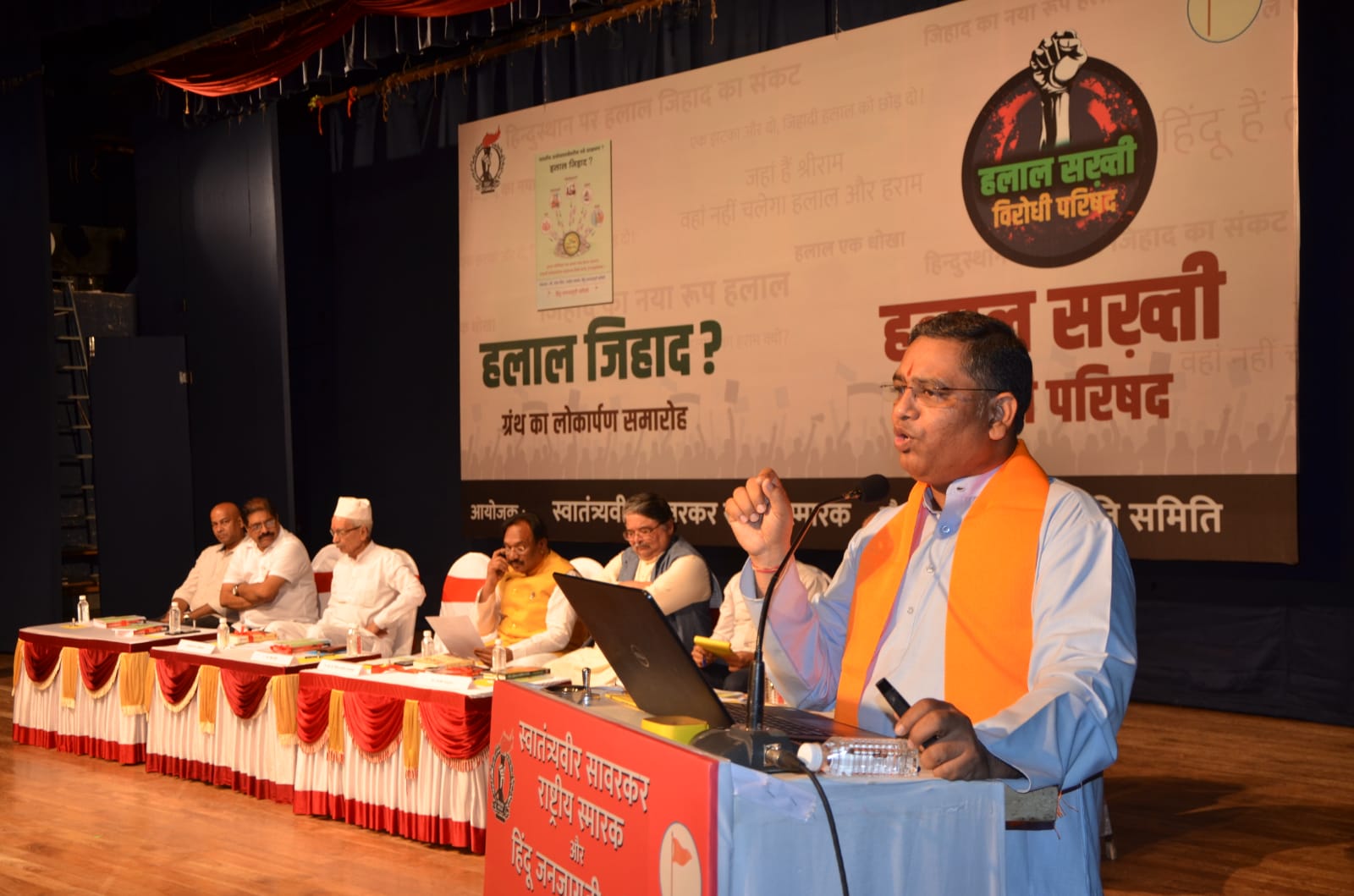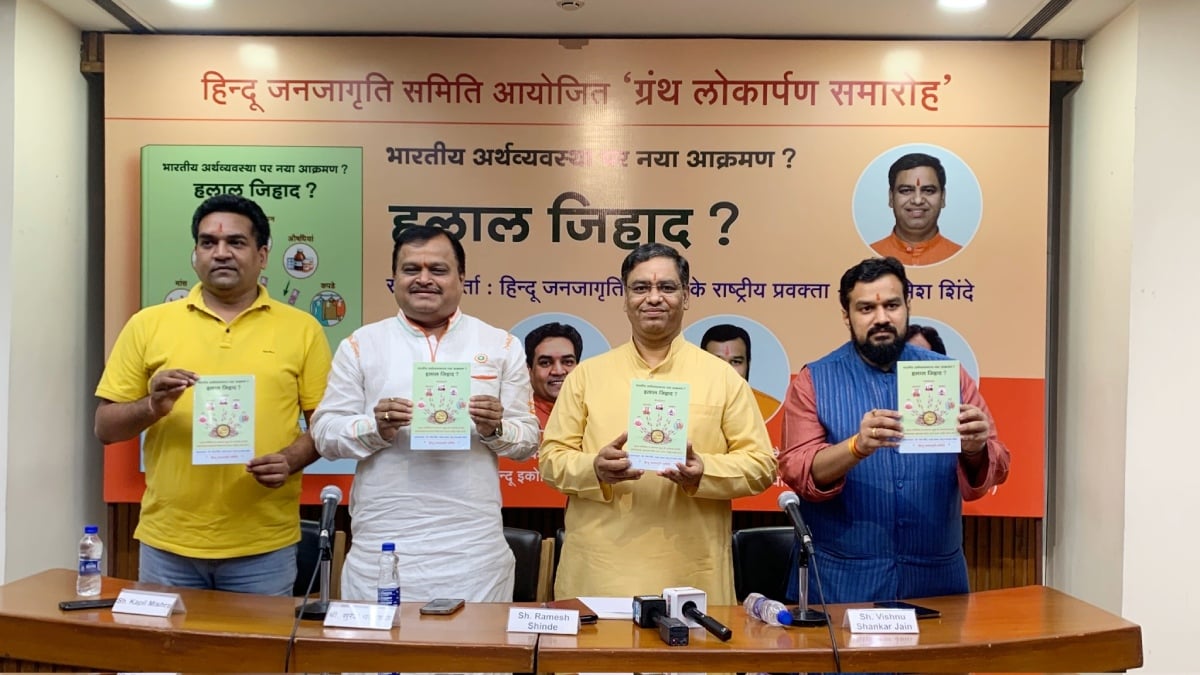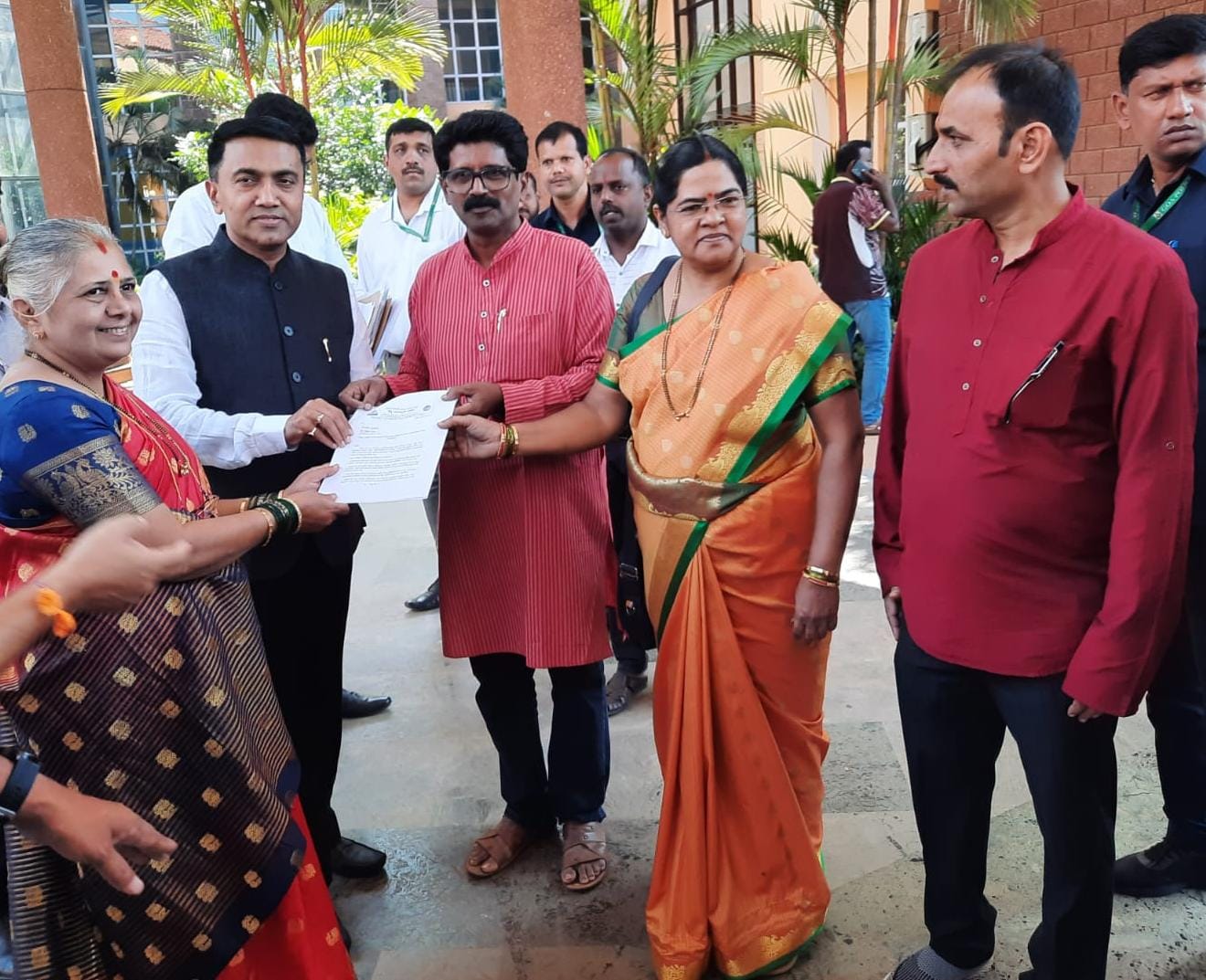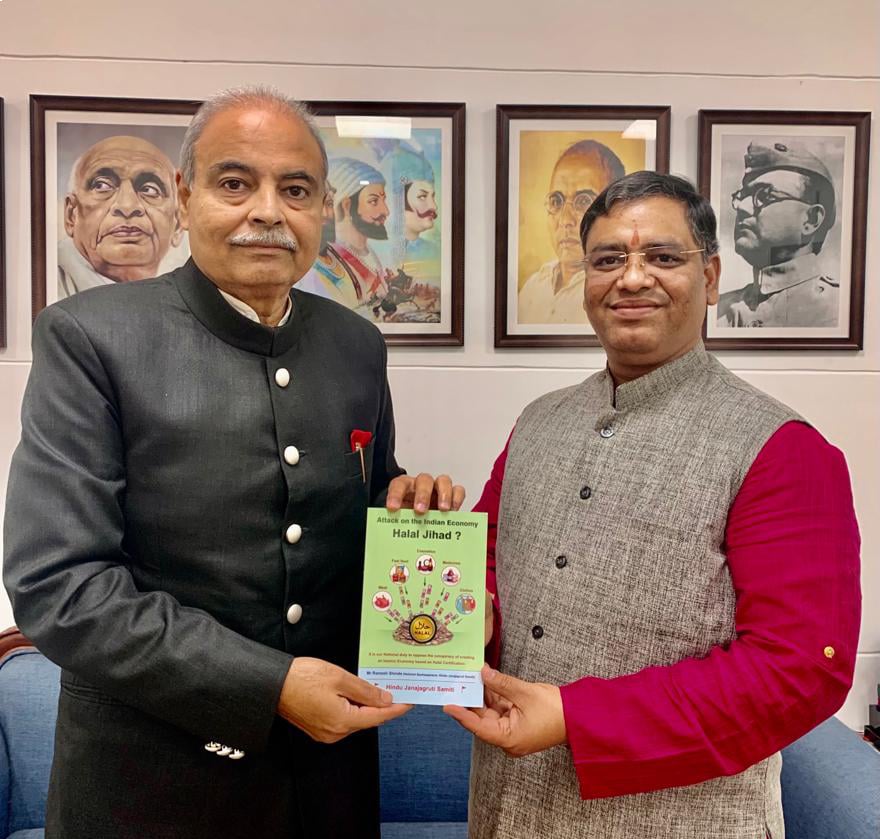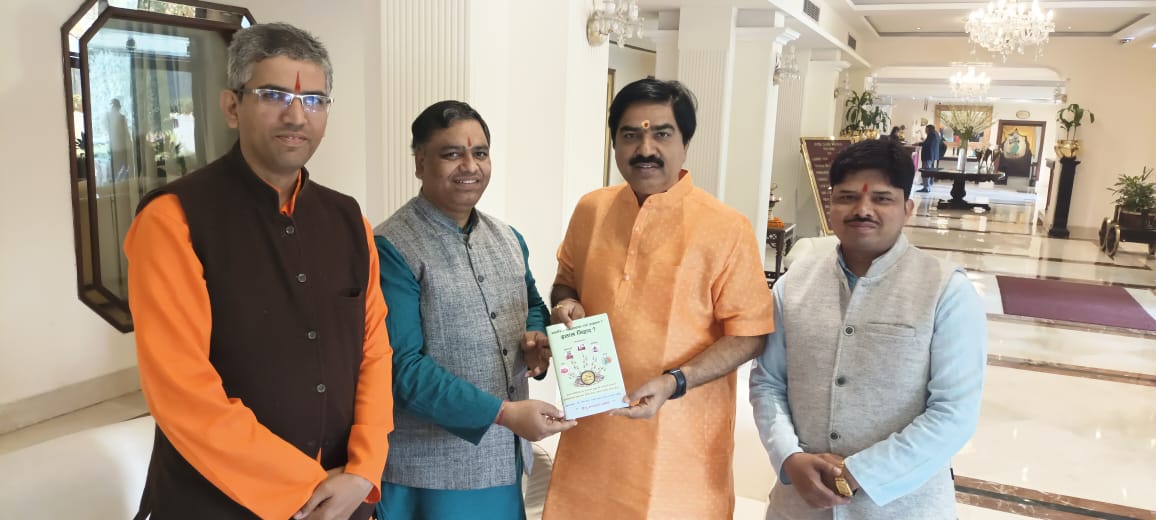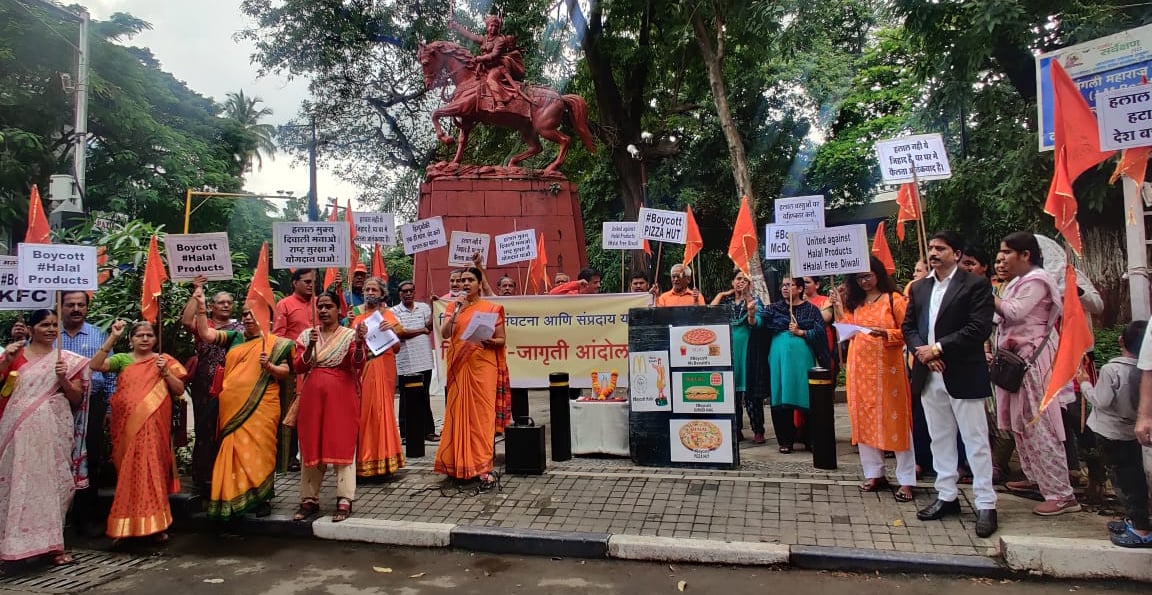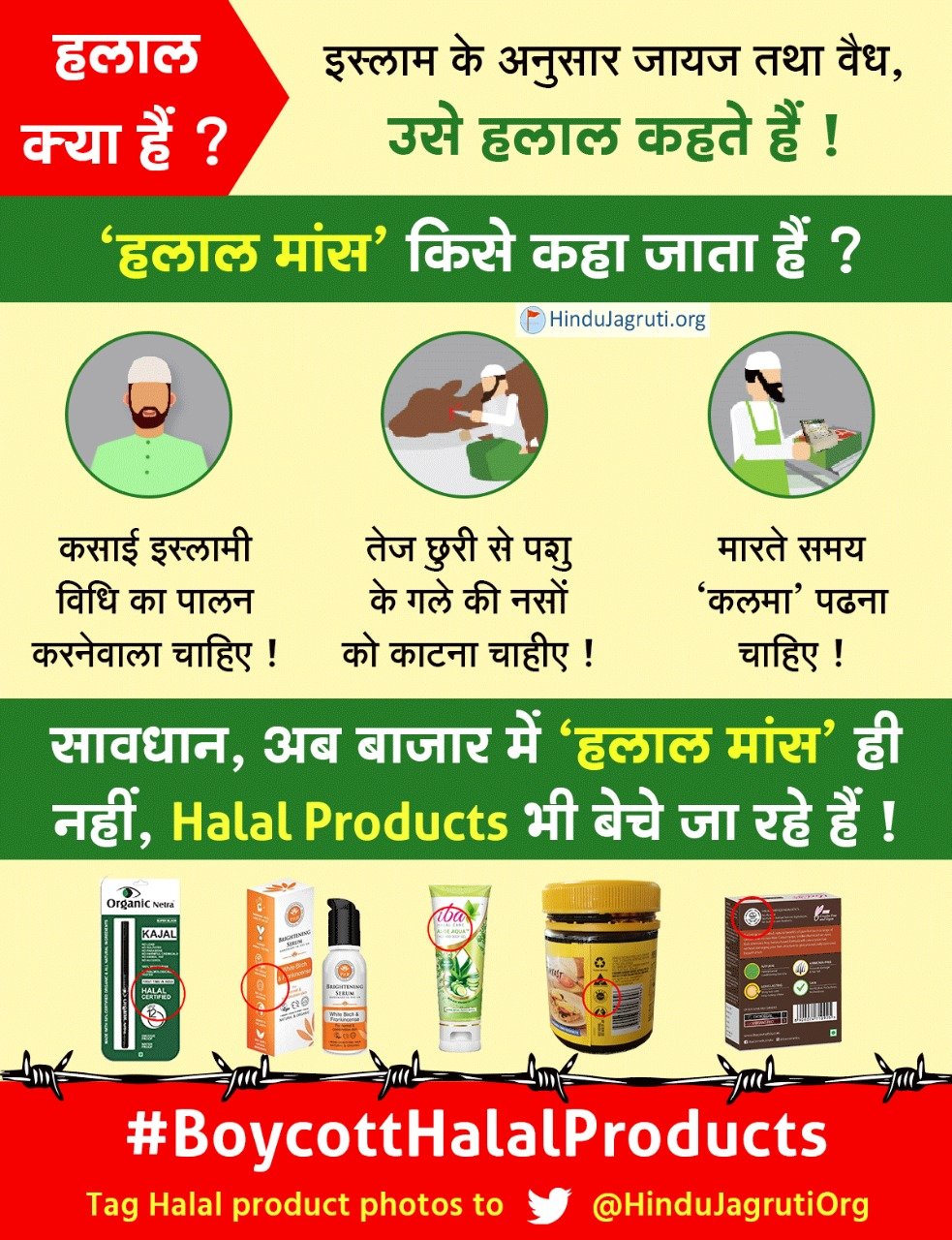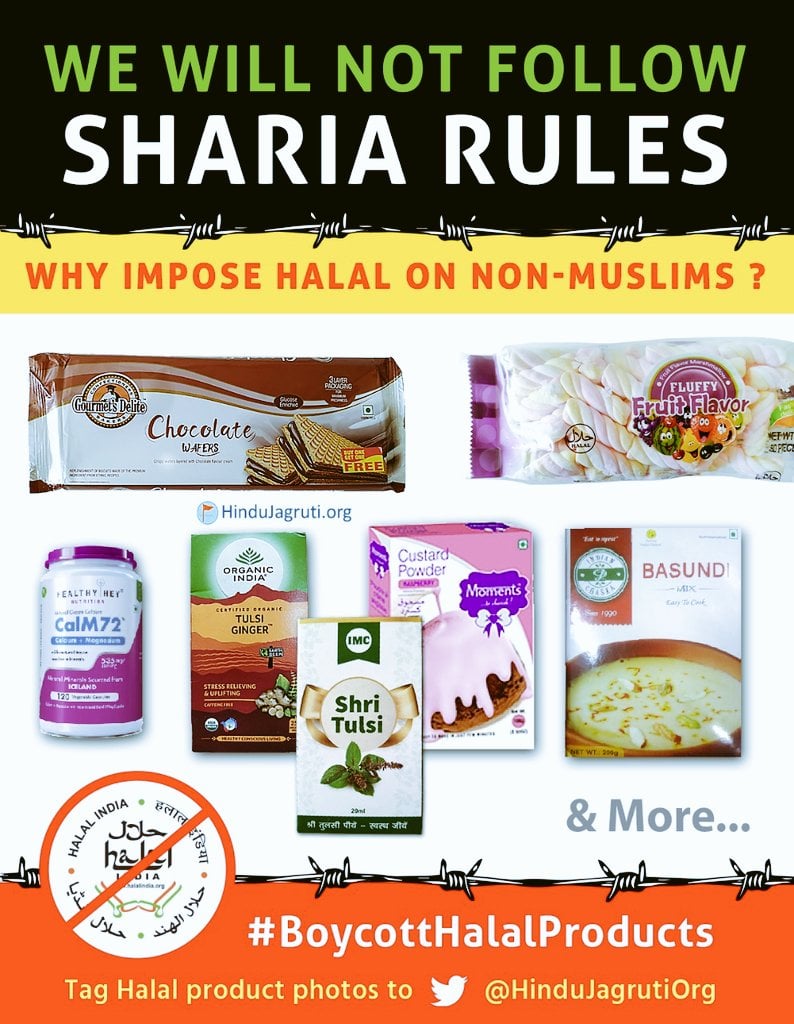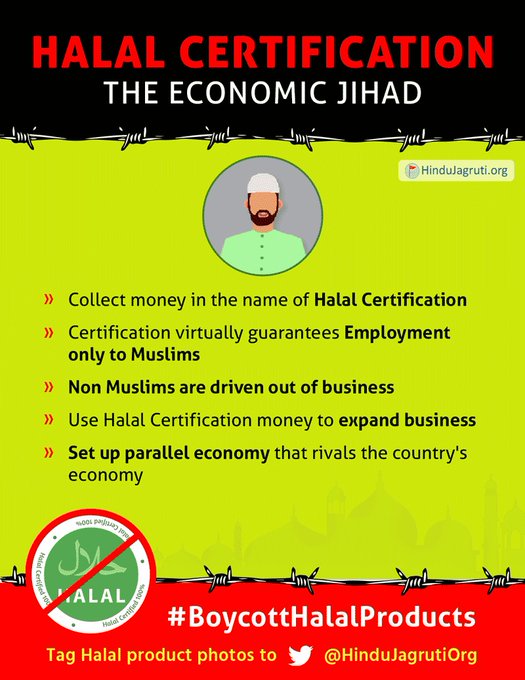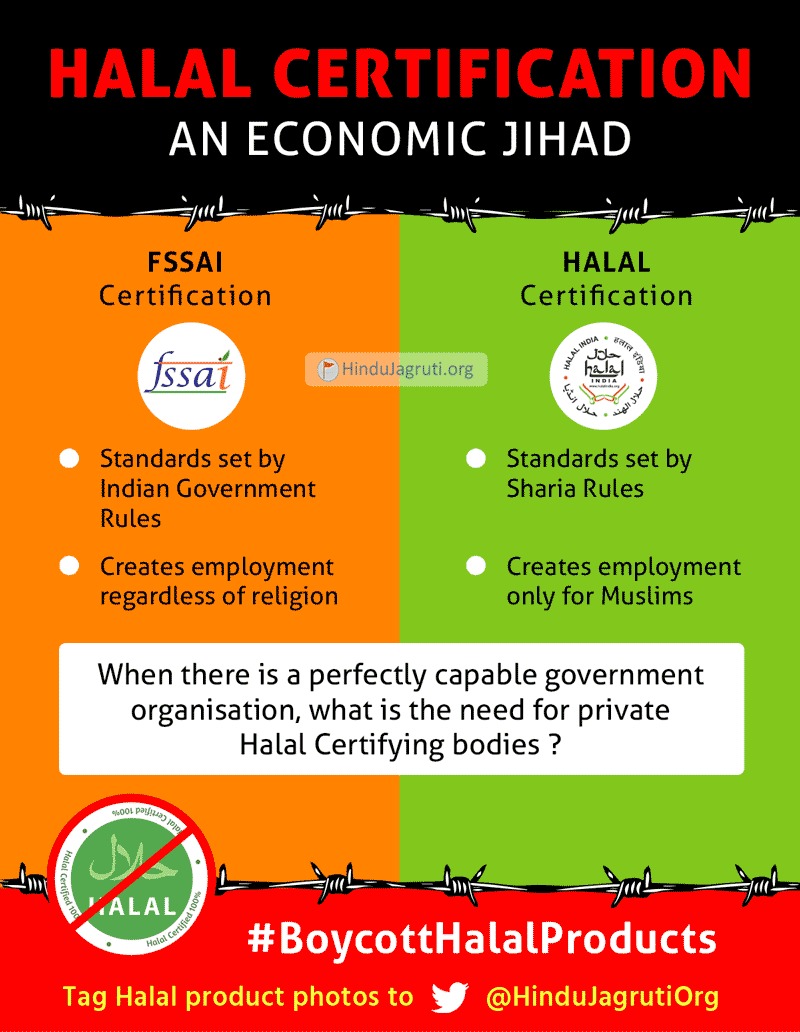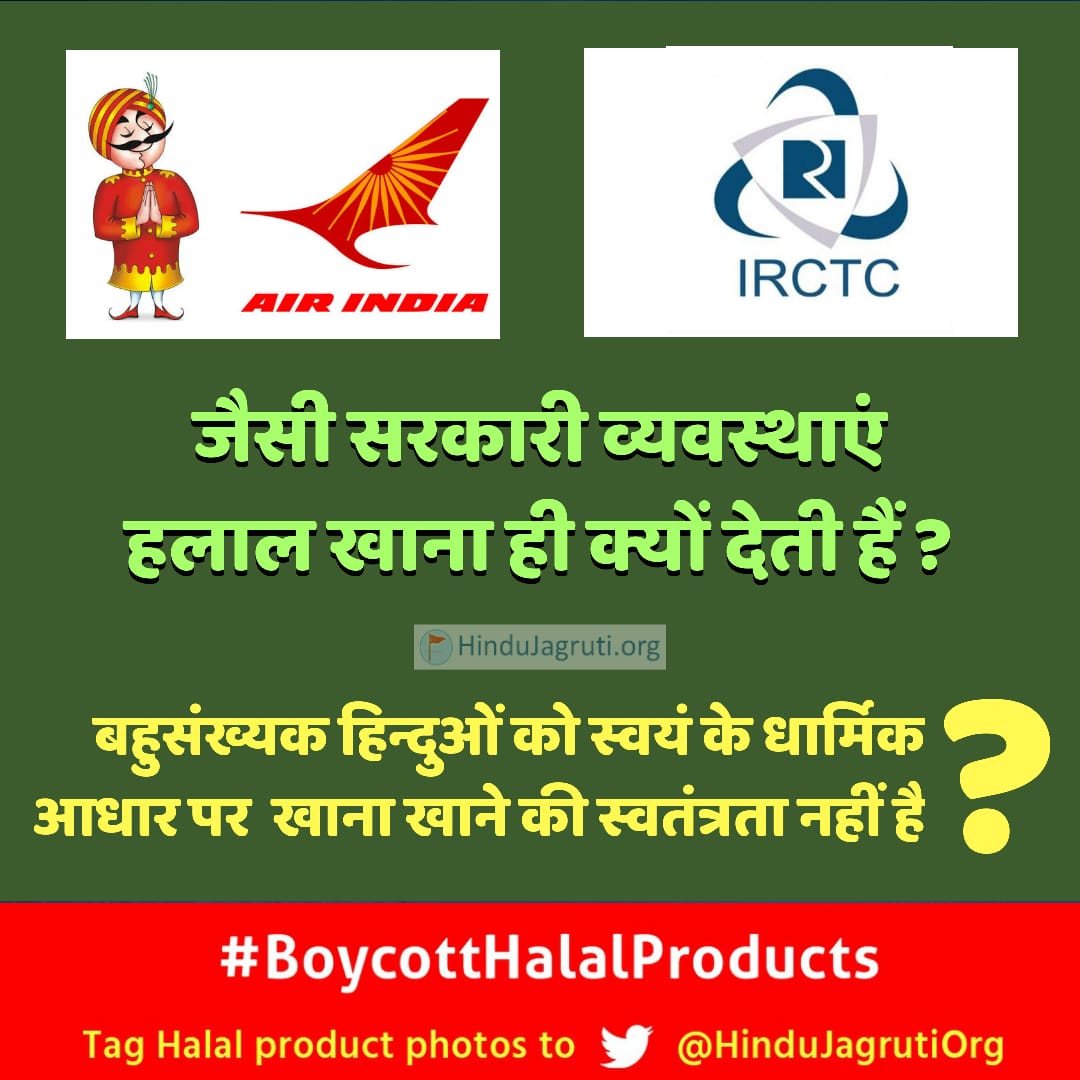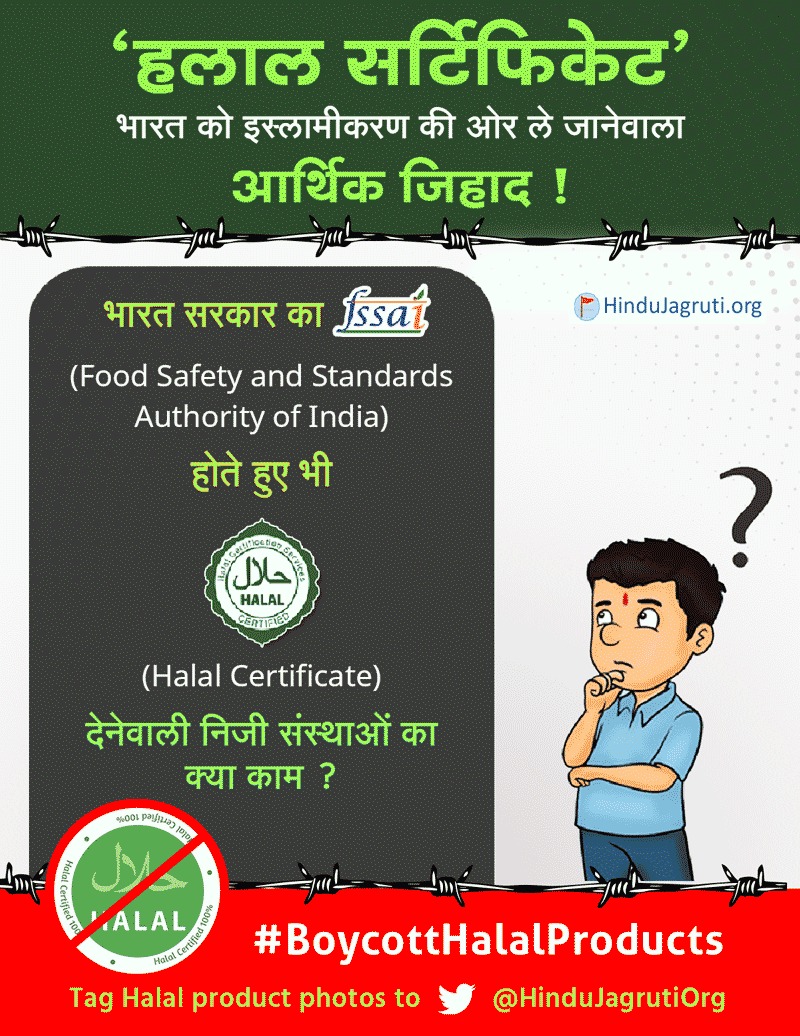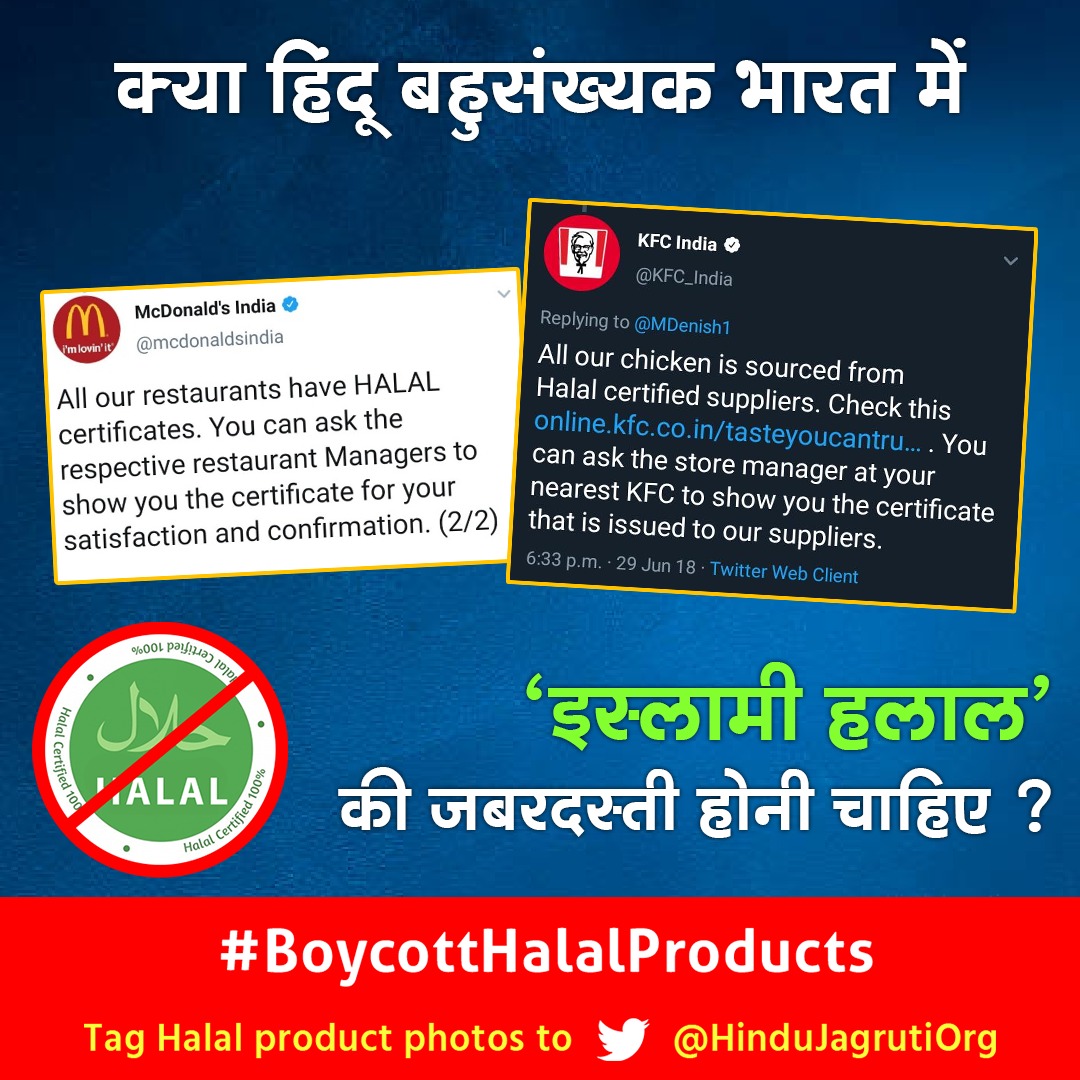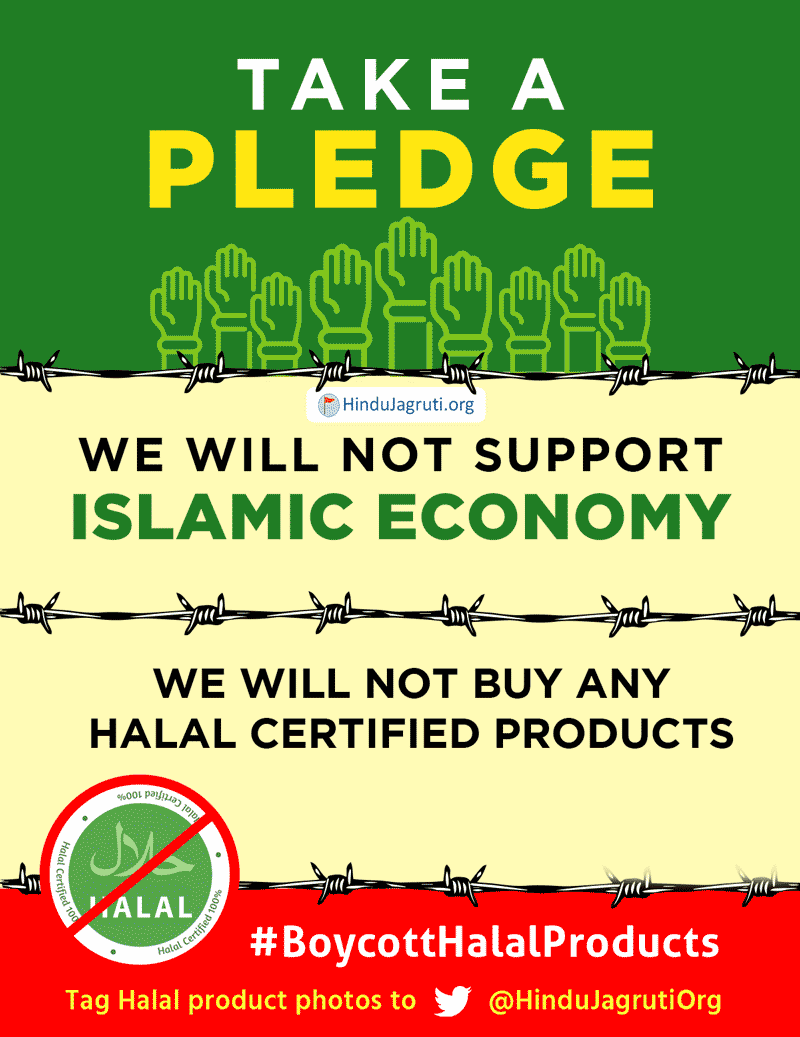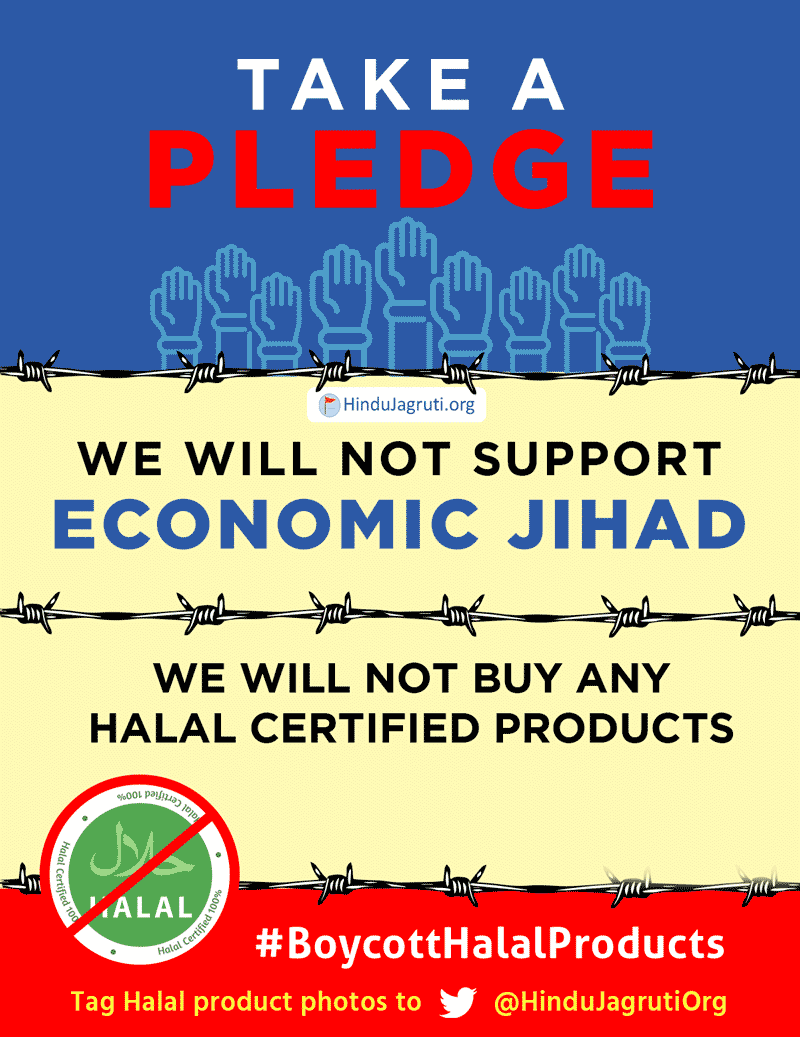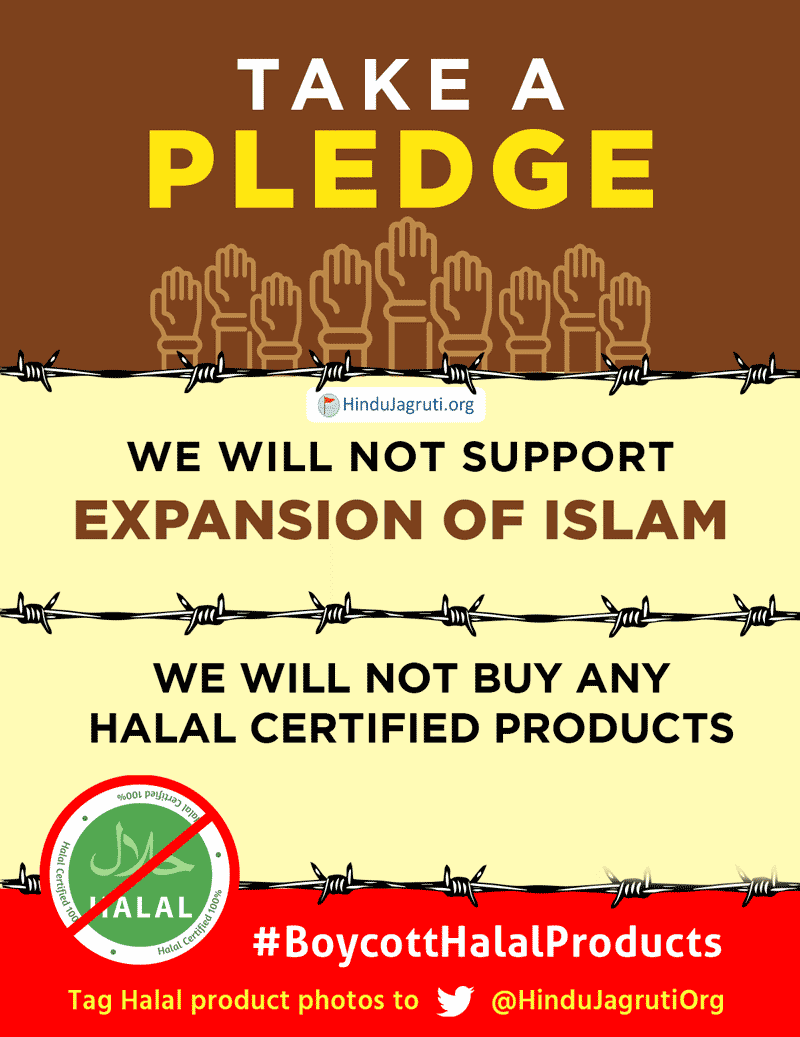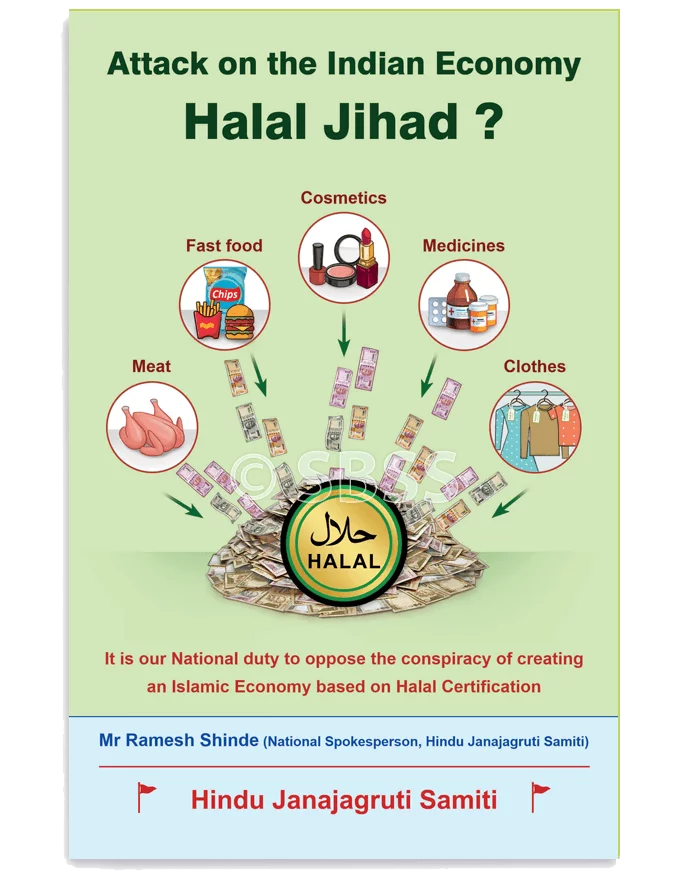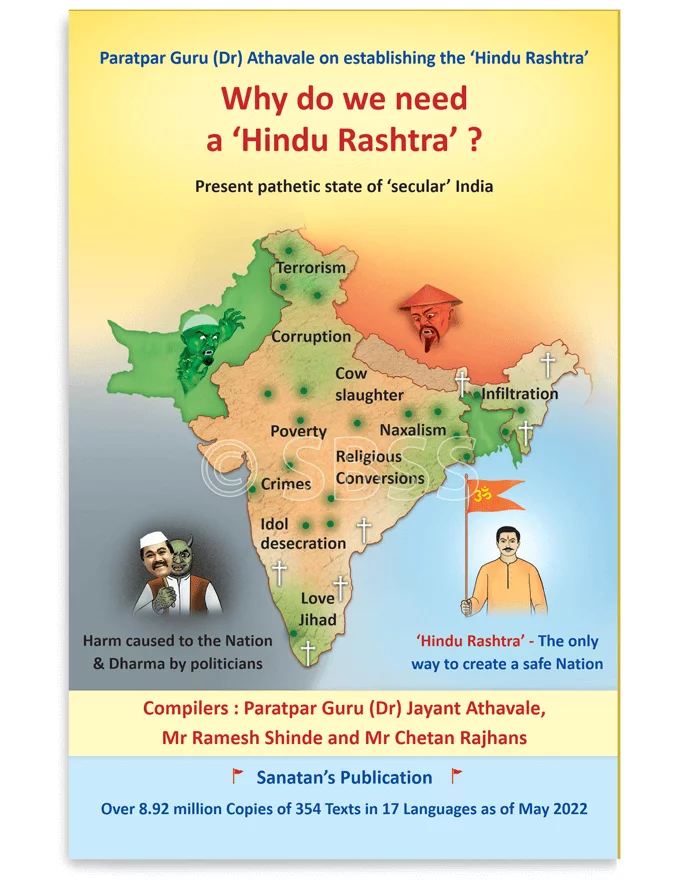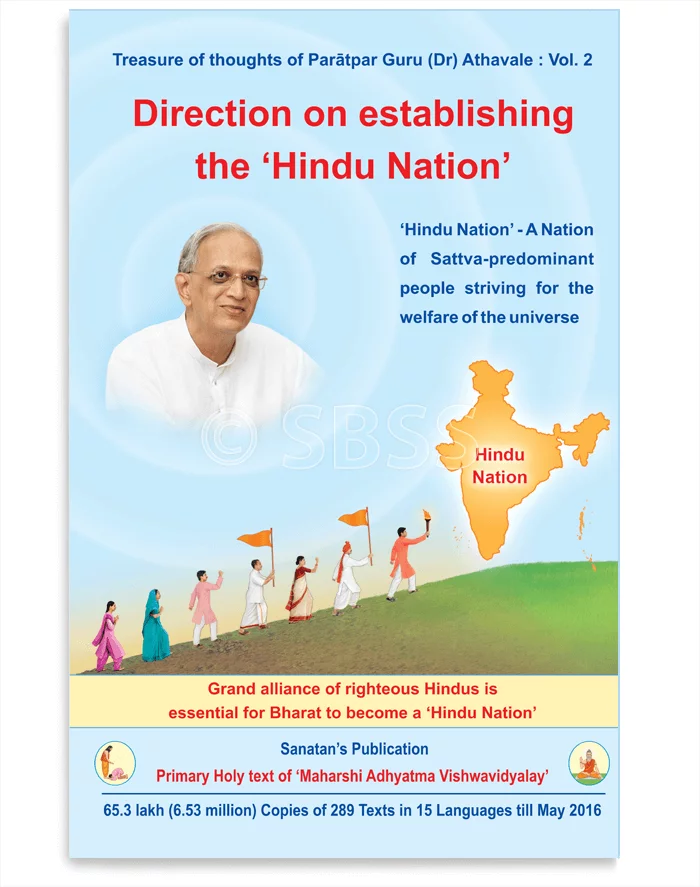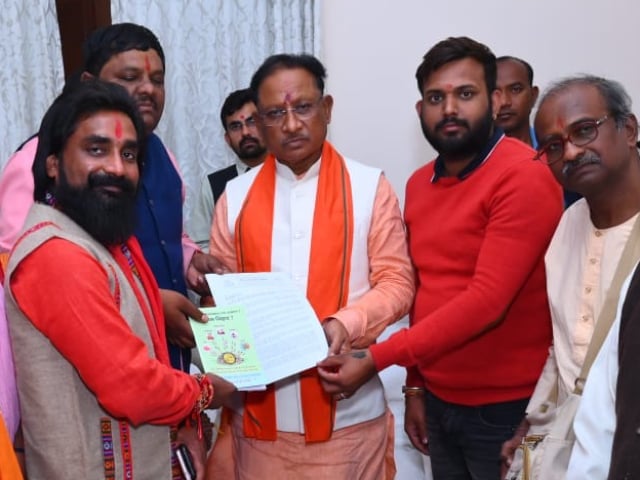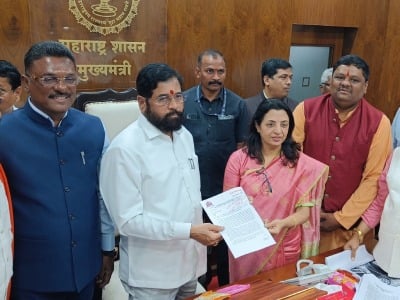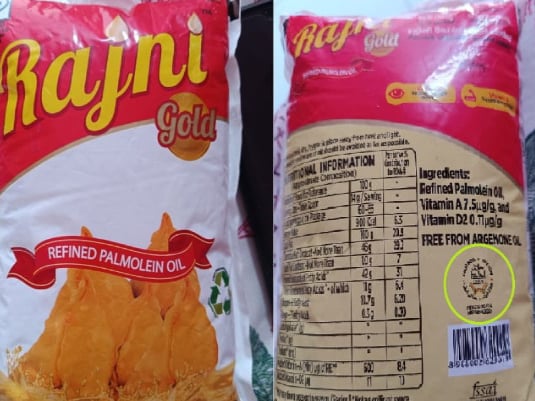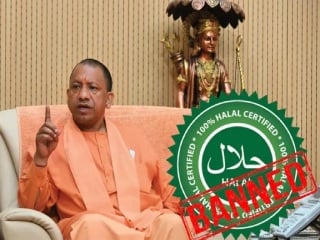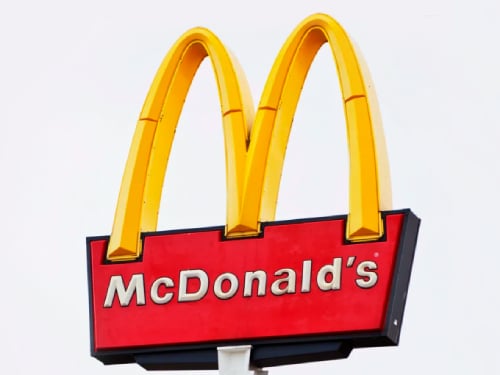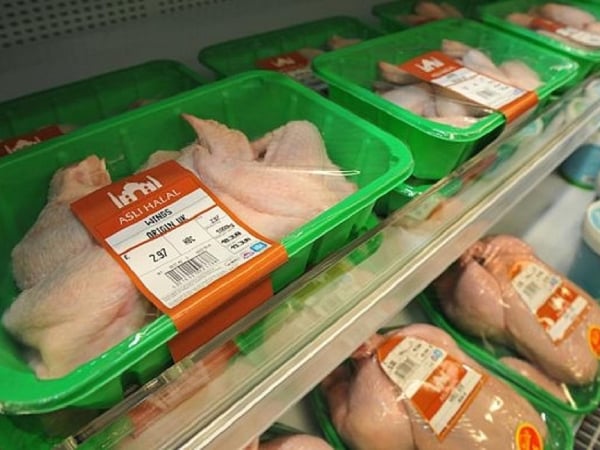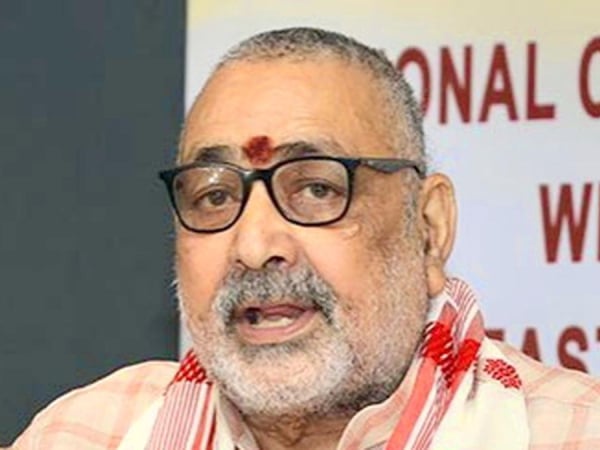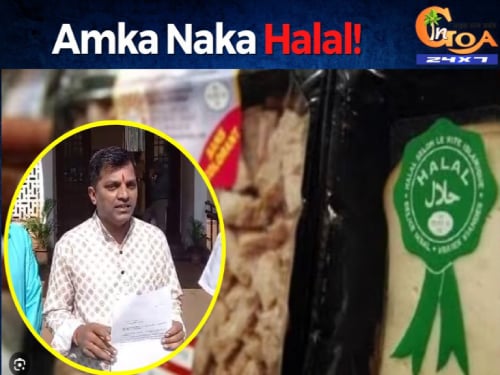BEWARE !
HALAL COMPLETELY CONTROLS YOUR LIFE

HALAL MEAT

HALAL COSMETICS

HALAL MEDICINES
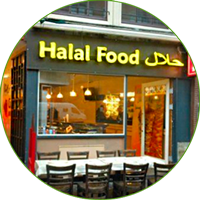
HALAL HOTEL

HALAL PROPERTY

HALAL FOOD
ANTI HALAL-IMPOSITION CAMPAIGN
Halal Certification is slowly becoming all-pervasive. From food to cosmetics, from hospitals to hospitality, from clothing to housing, Halal certification is chipping away into the nation’s economy. It is a system that is dictated by a certain religion’s beliefs that has crept into India’s secular system. It is a parallel economy that has taken a giant leap to stand up and challenge the GDP of quite a few nations. It is a system that has been found complicit in terror funding. Halal certification based Halal economy is a system that needs to be dismantled for the safety and security of India and her people.
Halal – The gateway to Islamization of India
Non-Muslims are compelled to consume halal products violating their personal freedom
Only Muslims are employed, resulting in minority community taking over businesses
Increasingly bringing oblivious Hindus under the authority of Sharia law
Traders forced to cough up money to get goods Halal certified from dubious certification boards
Halal certification fee funneled to support terrorism and expansion of Islam in India and abroad
Halal economy on track to overthrow Indian economy, is the world’s fastest growing economy
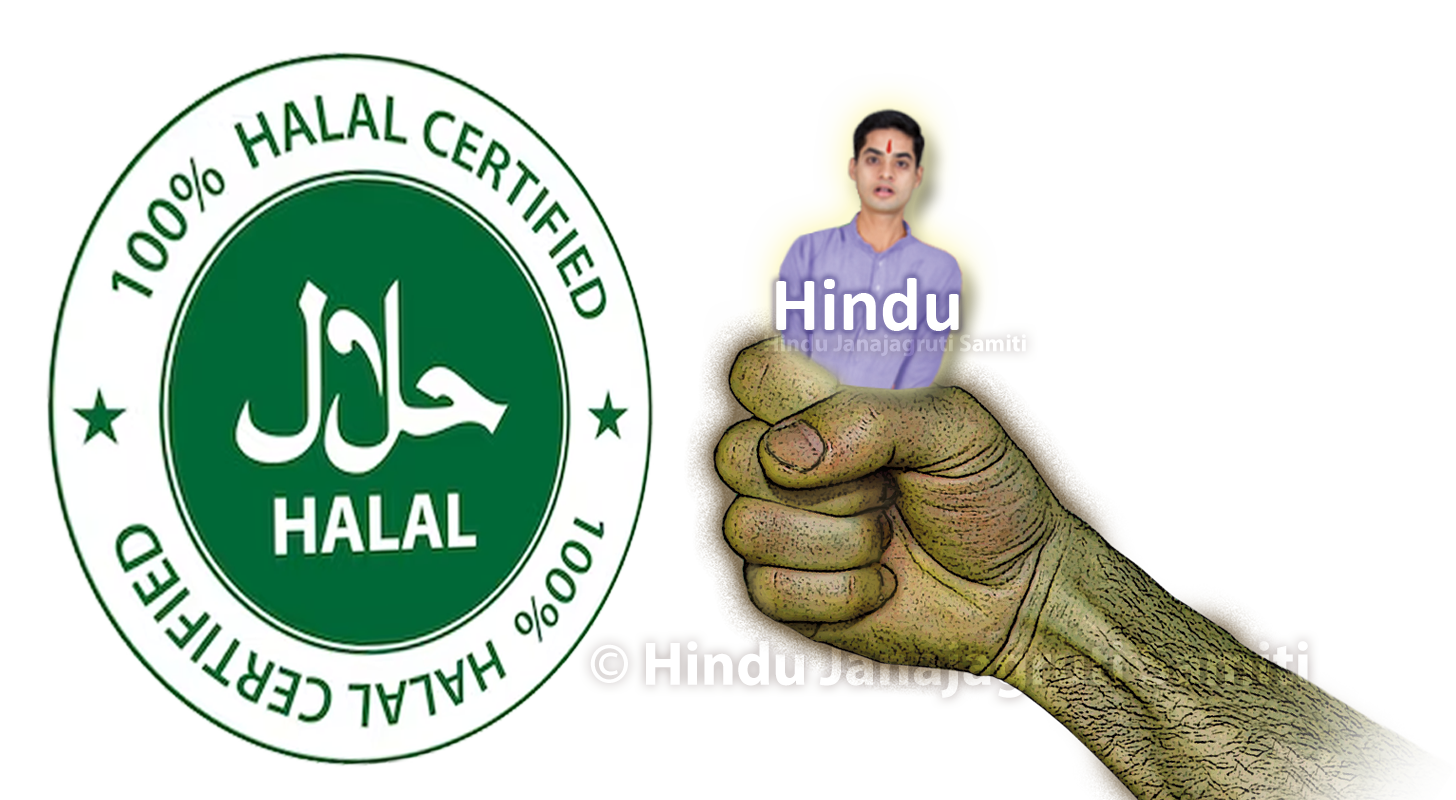
Union Govt must Impose immediate ban on religion-based
‘Halal’ certification
Union Govt must Impose immediate ban on religion-based
‘Halal’ certification
Efforts of Hindu Janajagruti Samiti
Hindu Janajagruti Samiti has spearheaded the movement against ‘Halal Jihad’ since 2019

The Samiti was the first to come out with a book with comprehensive research & statistics on Halal Jihad

The Samiti also organized online discussions with businessmen and legal experts on Halal Certification

The Samiti led delegations have sought a complete ban on religion based ‘Halal certificate’ system and investigations into all institutions issuing such certificates

The Samiti organized national level Hindu Rashtra Jagruti Andolan along with likeminded organizations demanding an immediate ban on Halal certification.

The Samiti organizes public lectures for businessmen, traders, and entrepreneurs, on Halal Jihad, who are actively joining HJS’ drive against this economic jihad.

The Samiti has been encouraging people to consider consuming non-Halal certified goods through special awareness drives during Diwali and other festivals.

The Samiti scored a big win against the Halal economy when the organizers of Halal Show India were forced to cancel it due to uproar from all sections of society.

One of the biggest wins for the Hindu unity was when the Union government dropped the requirement for all export quality meat to be Halal certified

View Gallery
Share and make aware !
Tag Halal products photos to @HindujagrutiOrg
What can you do ?

Do not buy or sell any Halal certified products

Stop patronising establishments that sell Halal meat

Do not seek Halal certification for your products

Use your social media influence to create awareness about dangers of Halal jihad

Distribute books, pamphlets, posters creating awareness about Halal jihad in your area
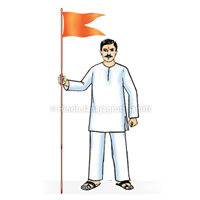
Protest against eateries that offer only Halal meat or Halal food items

Demand that the HMO investigates whether funds collected to issue Halal certificates are being utilised to support terrorism

Submit letters to Minister of Commerce & Industry, the PMO and the District authorities demanding a ban on the parallel Halal economy system

Use the Prevention of Cruelty Act, 1960, make efforts to ban the unjust customs that are part of Halal slaughter to ensure humane treatment to animals


Organise lectures and seminars on Halal economy to raise awareness among Hindus in your respective areas.

Shop from our catalogue
Buy these books, sponsor them, gift to others too.
Do your bit for the Nation !
